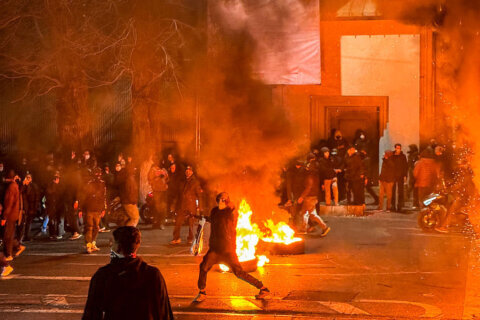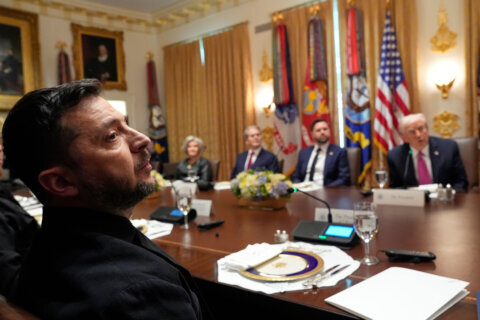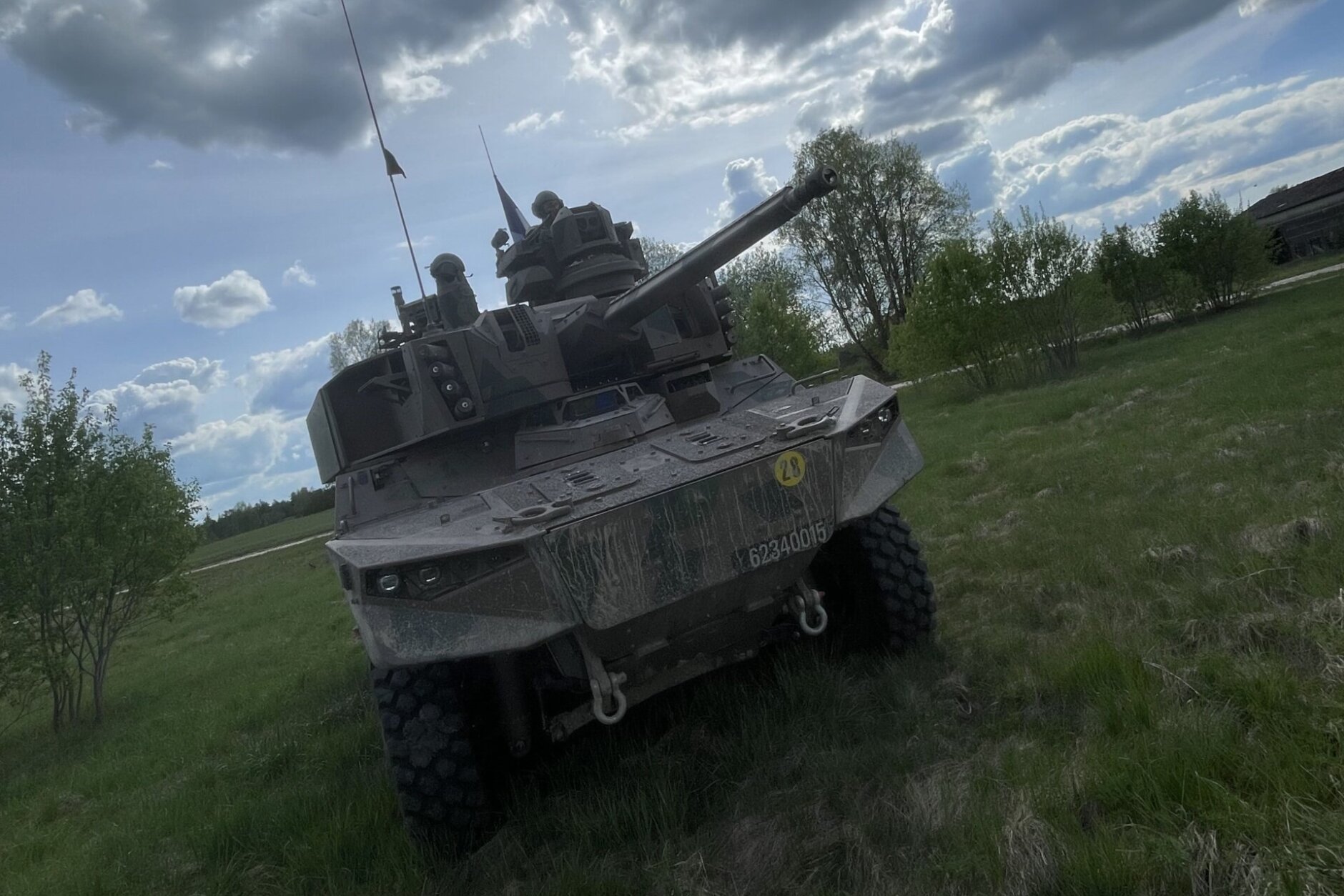
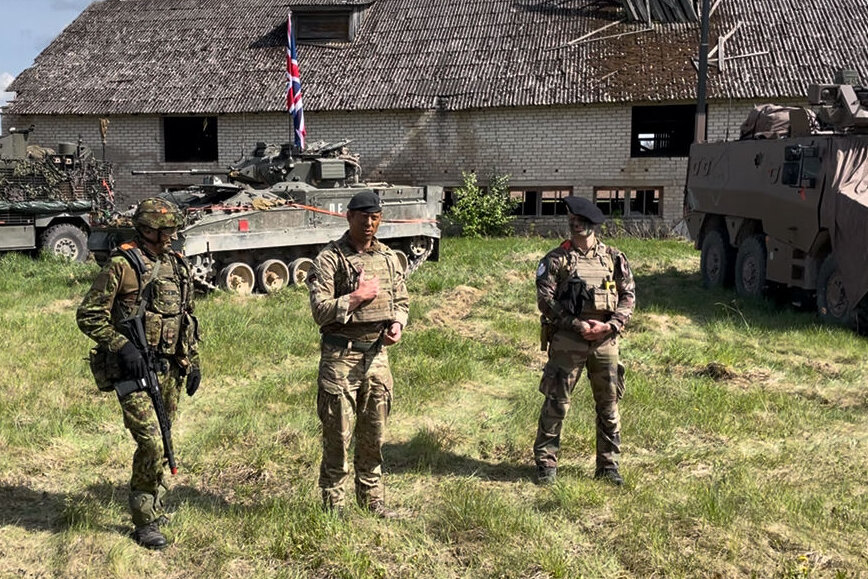
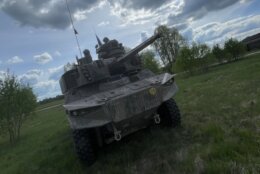
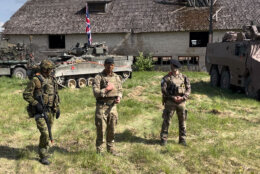
Large tanks and armored vehicles rolled across dirt roads. Heavily armed soldiers cloaked in camouflage, crept slowly through open fields and around the perimeter of houses and other community buildings. Thousands of troops from 15 NATO countries have infiltrated the sleepy, rural outpost and set up camp.
Residents moved about their daily activities as if nothing was happening. That’s because it was only a simulation. It’s part of a multinational military training exercise called Spring Storm.
But given the brutal war Ukraine is going through, and aggressive rhetoric from next-door neighbor Russia, it’s not out of the realm of possibility that something like that could happen in Estonia.
Prime Minister of Estonia Kaja Kallas attended the exercises and told reporters the event was a signal to Moscow.
“We are sending the message, don’t think about us, because we are prepared to push back the attack if they consider, that it will not be easy. So, I think the signal that we want to send is, ‘Don’t come here,'” said Kallas.
That message was echoed by Estonian Defense Minister Hanno Pevkur: “We are ready. There is no reason to believe that Estonia is not ready. Estonia is ready with our allies.”
Spring Storm is a NATO training exercise based in Estonia, with allied forces conducting training and integrating combined armed forces, tactical and sustainable scenarios involving over 14,000 troops from Canada, Denmark, France, Italy, Poland, the United Kingdom and the United States.
It’s a part of a larger exercise called Steadfast Defender, which includes 90,000 personnel from across the alliance — the largest NATO exercise since the end of the Cold War.
The Steadfast Defender exercise is split into two overlapping parts. Each phase of the exercise includes a range of associated exercises hosted by different countries.
Part one focuses on trans-Atlantic reinforcement — the strategic deployment of North American forces across the Atlantic to continental Europe. This phase includes maritime live exercises and amphibious assault training in the North Atlantic and Arctic seas.
Part two focuses on multi-domain exercises across Europe — demonstrating NATO, national and multinational military capabilities. This phase will test the rapid deployment of troops and equipment across borders within the Alliance.
The stated goal of Estonia’s Spring Storm exercise was to practice conducting defensive operations in cooperation with Allied forces under conventional warfare conditions, involving other branches and commands of the Estonian Defense Forces.
The exercise, in addition to the unmistakable messaging to Russia’s military, is a key for Estonia’s readiness.
“This is our annual exercise, and we are testing our own forces and people who are coming out from the conscript service,” said Pevkur.
But there was a broader concern as the exercise unfolded.
According to the International Centre for Defense and Security, which is based in Tallinn, Estonia’s capital, “there has been a notable uptick in the expansion of military arsenals globally, spearheaded by Russia and China. And there is a risk of a broader arms race, encompassing both nuclear and conventional capabilities.”
The war in Ukraine has demonstrated that the application of emerging technologies has become indispensable in modern warfare. To prevail in a future war, nations are developing weapon systems controlled by artificial intelligence and are investing heavily in new technologies, such as quantum computing.
As a result, NATO is looking at multiple challenges in the near future and Spring Storm, is designed to demonstrate that the country is stable, which might also translate into a message of deterrence.
WTOP National Security Correspondent JJ Green reported from Parnu, Estonia.
Get breaking news and daily headlines delivered to your email inbox by signing up here.
© 2024 WTOP. All Rights Reserved. This website is not intended for users located within the European Economic Area.



